DL-3-Aminobutyric acid
Modify Date: 2024-01-03 16:50:04
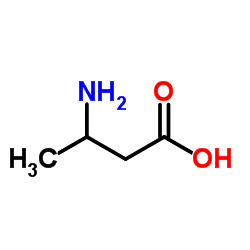
DL-3-Aminobutyric acid structure
|
Common Name | DL-3-Aminobutyric acid | ||
|---|---|---|---|---|
| CAS Number | 2835-82-7 | Molecular Weight | 103.120 | |
| Density | 1.1±0.1 g/cm3 | Boiling Point | 223.6±23.0 °C at 760 mmHg | |
| Molecular Formula | C4H9NO2 | Melting Point | 189-191ºC (dec.) | |
| MSDS | N/A | Flash Point | 89.0±22.6 °C | |
| Name | Butyric acid, 3-amino-, (.+-.) |
|---|---|
| Synonym | More Synonyms |
| Density | 1.1±0.1 g/cm3 |
|---|---|
| Boiling Point | 223.6±23.0 °C at 760 mmHg |
| Melting Point | 189-191ºC (dec.) |
| Molecular Formula | C4H9NO2 |
| Molecular Weight | 103.120 |
| Flash Point | 89.0±22.6 °C |
| Exact Mass | 103.063332 |
| PSA | 63.32000 |
| LogP | -0.51 |
| Vapour Pressure | 0.0±0.9 mmHg at 25°C |
| Index of Refraction | 1.462 |
| Water Solubility | soluble | soluble |
Synonym: Section 2 - COMPOSITION, INFORMATION ON INGREDIENTS
Risk Phrases: None Listed. Section 3 - HAZARDS IDENTIFICATION EMERGENCY OVERVIEW
Not available. Potential Health Effects Eye: May cause eye irritation. Skin: May cause skin irritation. Ingestion: May cause irritation of the digestive tract. The toxicological properties of this substance have not been fully investigated. Inhalation: May cause respiratory tract irritation. The toxicological properties of this substance have not been fully investigated. Chronic: Not available. Section 4 - FIRST AID MEASURES Eyes: Flush eyes with plenty of water for at least 15 minutes, occasionally lifting the upper and lower eyelids. Get medical aid. Skin: Get medical aid. Flush skin with plenty of water for at least 15 minutes while removing contaminated clothing and shoes. Ingestion: Get medical aid. Wash mouth out with water. Inhalation: Remove from exposure and move to fresh air immediately. If not breathing, give artificial respiration. If breathing is difficult, give oxygen. Get medical aid. Notes to Physician: Section 5 - FIRE FIGHTING MEASURES General Information: As in any fire, wear a self-contained breathing apparatus in pressure-demand, MSHA/NIOSH (approved or equivalent), and full protective gear. Extinguishing Media: Use water spray, dry chemical, carbon dioxide, or chemical foam. Section 6 - ACCIDENTAL RELEASE MEASURES General Information: Use proper personal protective equipment as indicated in Section 8. Spills/Leaks: Vacuum or sweep up material and place into a suitable disposal container. Section 7 - HANDLING and STORAGE Handling: Avoid breathing dust, vapor, mist, or gas. Avoid contact with skin and eyes. Storage: Store in a cool, dry place. Store in a tightly closed container. Section 8 - EXPOSURE CONTROLS, PERSONAL PROTECTION Engineering Controls: Use adequate ventilation to keep airborne concentrations low. Exposure Limits CAS# 2835-82-7: Personal Protective Equipment Eyes: Not available. Skin: Wear appropriate protective gloves to prevent skin exposure. Clothing: Wear appropriate protective clothing to prevent skin exposure. Respirators: Follow the OSHA respirator regulations found in 29 CFR 1910.134 or European Standard EN 149. Use a NIOSH/MSHA or European Standard EN 149 approved respirator if exposure limits are exceeded or if irritation or other symptoms are experienced. Section 9 - PHYSICAL AND CHEMICAL PROPERTIES Physical State: Powder Color: white Odor: Not available. pH: Not available. Vapor Pressure: Not available. Viscosity: Not available. Boiling Point: Not available. Freezing/Melting Point: 194 deg C Autoignition Temperature: Not available. Flash Point: Not available. Explosion Limits, lower: Not available. Explosion Limits, upper: Not available. Decomposition Temperature: Solubility in water: soluble Specific Gravity/Density: Molecular Formula: C4H9NO2 Molecular Weight: 103.12 Section 10 - STABILITY AND REACTIVITY Chemical Stability: Stable under normal temperatures and pressures. Conditions to Avoid: Incompatible materials, light, excess heat. Incompatibilities with Other Materials: Strong oxidizing agents. Hazardous Decomposition Products: Nitrogen oxides, carbon monoxide, carbon dioxide. Hazardous Polymerization: Has not been reported. Section 11 - TOXICOLOGICAL INFORMATION RTECS#: CAS# 2835-82-7 unlisted. LD50/LC50: Not available. Carcinogenicity: DL-3-AMINO BUTYRIC ACID - Not listed by ACGIH, IARC, or NTP. Section 12 - ECOLOGICAL INFORMATION Section 13 - DISPOSAL CONSIDERATIONS Dispose of in a manner consistent with federal, state, and local regulations. Section 14 - TRANSPORT INFORMATION IATA Not regulated as a hazardous material. IMO Not regulated as a hazardous material. RID/ADR Not regulated as a hazardous material. Section 15 - REGULATORY INFORMATION European/International Regulations European Labeling in Accordance with EC Directives Hazard Symbols: Not available. Risk Phrases: Safety Phrases: S 24/25 Avoid contact with skin and eyes. WGK (Water Danger/Protection) CAS# 2835-82-7: No information available. Canada None of the chemicals in this product are listed on the DSL/NDSL list. CAS# 2835-82-7 is not listed on Canada's Ingredient Disclosure List. US FEDERAL TSCA CAS# 2835-82-7 is not listed on the TSCA inventory. It is for research and development use only. SECTION 16 - ADDITIONAL INFORMATION N/A |
| Hazard Codes | Xi |
|---|---|
| Risk Phrases | 36/37/38 |
| Safety Phrases | S22-S24/25 |
| WGK Germany | 3 |
| RTECS | EK7713333 |
| HS Code | 2922499990 |
| Precursor 8 | |
|---|---|
| DownStream 10 | |
| HS Code | 2922499990 |
|---|---|
| Summary | HS:2922499990 other amino-acids, other than those containing more than one kind of oxygen function, and their esters; salts thereof VAT:17.0% Tax rebate rate:9.0% Supervision conditions:AB(certificate of inspection for goods inward,certificate of inspection for goods outward) MFN tariff:6.5% General tariff:30.0% |
| UNII:4282SA5CTS |
| 3-Methyl-b-alanine |
| 3-Aminobutyric acid |
| 3-Aminobutanoic acid |
| DL-β-Aminobutyric acid |
| DL-BABA |
| RARECHEM AK HD C012 |
| 3-AMINOBUTYLIC ACID |
| dl-β-Amino-n-butyric acid |
| RS-3-aminobutanoic acid |
| DL-3-Aminobutyric Acid |
| β-Aminobutanoic acid |
| β-Aminobutyric acid |
| MFCD00008087 |
| EINECS 220-617-0 |
| Butanoic acid, 3-amino- |
 CAS#:2434-49-3
CAS#:2434-49-3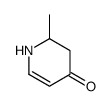 CAS#:34697-37-5
CAS#:34697-37-5 CAS#:91246-78-5
CAS#:91246-78-5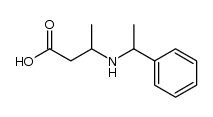 CAS#:3775-69-7
CAS#:3775-69-7 CAS#:43080-09-7
CAS#:43080-09-7 CAS#:107-93-7
CAS#:107-93-7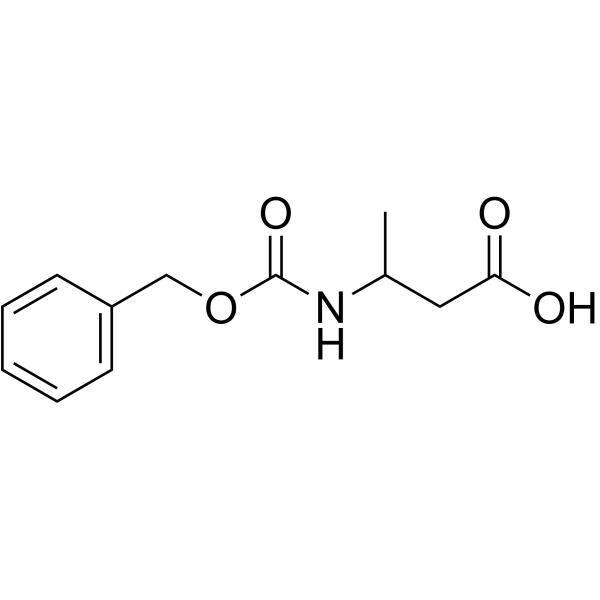 CAS#:51440-81-4
CAS#:51440-81-4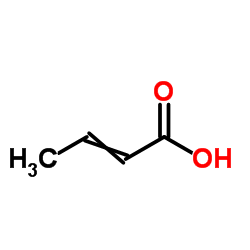 CAS#:3724-65-0
CAS#:3724-65-0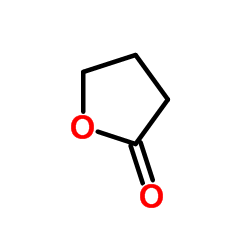 CAS#:3068-88-0
CAS#:3068-88-0 CAS#:124-38-9
CAS#:124-38-9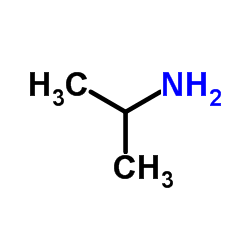 CAS#:75-31-0
CAS#:75-31-0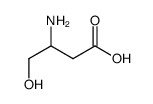 CAS#:589-44-6
CAS#:589-44-6 CAS#:302-72-7
CAS#:302-72-7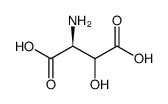 CAS#:71653-06-0
CAS#:71653-06-0 CAS#:302-84-1
CAS#:302-84-1 CAS#:565-81-1
CAS#:565-81-1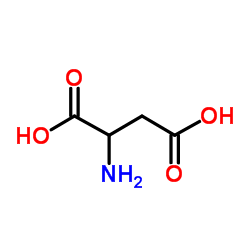 CAS#:617-45-8
CAS#:617-45-8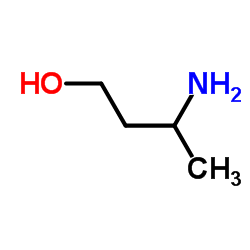 CAS#:2867-59-6
CAS#:2867-59-6